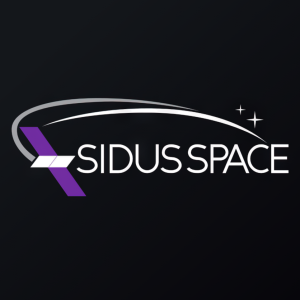Sidus Space Unveils Cutting-edge Multi-Material 3D Printed Space Hardware Division
The Company utilized MarkForged X7 printers and OnyxFR-A material to manufacture structural support components in its LizzieSat™ satellite, scheduled to launch on Transporter 10 no earlier than March 2024. This innovative material, reinforced with Carbon Fiber (CF) layers during the 3D printing process and featuring fire retardant properties, has enabled the creation of satellite parts that surpass the strength of aluminum while significantly reducing weight. This represents a revolutionary shift in traditional manufacturing methods.
To ensure adaptability to the space environment, Sidus conducted thorough outgassing tests in accordance with ASTM E595 standards. The results demonstrated impressive outcomes that proved compatibility with Space operations.
Building on the success of constructing LizzieSat™ with the Onyx nylon 3D printed materials, Sidus Space is extending its capabilities to the broader market. The Company offers a unique "digital warehouse" database for storing parts, allowing customers to print manufacturer-approved digital parts with ease. The service accommodates single or multiple units for personal use, and customers can opt to have their parts printed and delivered directly or have their clients print from Sidus Space's digital warehouse of 3D models.
The Multi-Material 3D Printing Division specializes in composite materials, including Nylon Onyx, Onyx FR-A, Carbon Fiber (CF), Fiberglass, and Kevlar. Additionally, the company offers 3D printing in PLA and TPU materials.
"Expanding our services to include Multi-Material 3D Printing is a natural progression for Sidus Space. We are excited to offer our advanced capabilities to a wider audience, providing innovative solutions for various industries," said Carol Craig, CEO and Founder of Sidus Space.
“This strategic move not only showcases our commitment to innovation but also establishes another revenue stream for Sidus Space, further solidifying our position as pioneers in the space and advanced manufacturing sectors.”
About Sidus Space
Sidus Space (NASDAQ: SIDU) is a Space and Data-as-a-Service satellite company focused on mission-critical hardware manufacturing; multi-disciplinary engineering services; satellite design, production, launch planning, mission operations; and in-orbit support. The Company is in
Sidus Space has a mission of Bringing Space Down to Earth™ and a vision of enabling space flight heritage status for new technologies while delivering data and predictive analytics to domestic and global customers. Any corporation, industry, or vertical can start their journey off-planet with Sidus Space’s rapidly scalable, low-cost satellite services, space-based solutions, and testing alternatives. More than just a “Satellite-as-a-Service” provider, Sidus Space is a trusted Mission Partner–from concept to Low Earth Orbit and beyond. Sidus Space is ISO 9001:2015, AS9100 Rev. D certified, and ITAR registered.
Forward-Looking Statements
Statements in this press release about future expectations, plans and prospects, as well as any other statements regarding matters that are not historical facts, may constitute ‘forward-looking statements’ within the meaning of The Private Securities Litigation Reform Act of 1995. These statements include, but are not limited to, statements relating to the expected trading commencement and closing dates. The words ‘anticipate,’ ‘believe,’ ‘continue,’ ‘could,’ ‘estimate,’ ‘expect,’ ‘intend,’ ‘may,’ ‘plan,’ ‘potential,’ ‘predict,’ ‘project,’ ‘should,’ ‘target,’ ‘will,’ ‘would’ and similar expressions are intended to identify forward-looking statements, although not all forward-looking statements contain these identifying words. Actual results may differ materially from those indicated by such forward-looking statements as a result of various important factors, including: the uncertainties related to market conditions and other factors described more fully in the section entitled ‘Risk Factors’ in Sidus Space’s Annual Report on Form 10-K for the year ended December 31, 2022, and other periodic reports filed with the Securities and Exchange Commission. Any forward-looking statements contained in this press release speak only as of the date hereof, and Sidus Space, Inc. specifically disclaims any obligation to update any forward-looking statement, whether as a result of new information, future events or otherwise.
View source version on businesswire.com: https://www.businesswire.com/news/home/20240118163595/en/
Investor Relations
Valter Pinto
KCSA Strategic Communications
sidus@kcsa.com
(212) 896-1254
Media
Pam Davis
Sidus Space
mediateam@sidusspace.com
Source: Sidus Space








